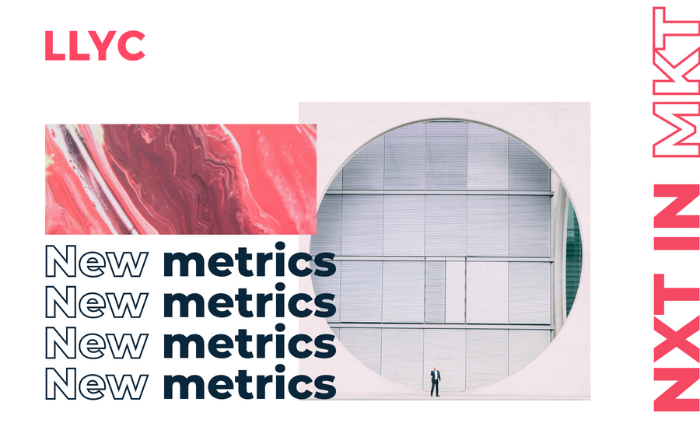What is effectiveness in marketing today? What dimensions are important? Which ones will be in the future? These are some of the questions that the global report aims to answer New Metrics: The path to Effective Marketing drawn up by LLYC’s Consumer Engagement area after surveying more than a hundred CMOs from companies in the 12 markets where the consultancy operates (Europe and Americas). One of the conclusions drawn from the document is that data has become more important than ever, but it has also multiplied the challenges of the sector in making decisions that make it possible to be a step ahead of consumers. These challenges are forcing brands to accelerate innovation in their measurement systems to be more effective. 60% of surveyed marketing directors say they have incorporated new methods in the last year, and almost three out of four say they already have Big Data analysts on their teams. Sales (83%) is the area where measurement systems are most relevant.
David Gonzalez Natal, Partner and Global Engagement Leader at LLYC: “We wanted to carry out this study to find out from very high-level marketing professionals how they face the evolution of metrics in the data era. At LLYC we have a clear focus on the search for efficiency in our marketing projects, and that involves understanding the transformations that are taking place to make better recommendations.”
“It is key that we understand the challenges that brands face, and measurement is certainly one of them. We have been able to see that the challenges and concerns are similar regardless of the category or the market, which helps us to continue improving in the search for efficiency,” says Patricia Cavada, Senior Director of Consumer Engagement at LLYC Madrid.
The relevance of performance measurement is no longer a matter of debate in marketing management today. It should nevertheless be borne in mind that this per se means nothing if it is not associated with strategic objectives and decision-making. This bifocal approach is seen in the most appreciated metrics indicated by respondents to evaluate the effectiveness management of their brands. While sales, market share and Net Promoter Score (NPS) prevail in the short term, reputation, brand equity and engagement stand out in the long term.
Marketing managers are clear about which projects they place the most importance on measurement: the Top 3 are made up of sales (83%), brand building (72%) and those of engagement (56%). In fourth position is reputation (35%).
The outstanding challenges include a greater integration of data between the areas of the organizations. Only half of the CMOs interviewed believe that a good level of information is shared internally.
Greater specialization to take advantage of data
Big Data is the technology with the greatest impact on measurement. 86% of CMOs consider it key, followed by Artificial Intelligence with 85% of responses. For this reason, there is an increasing amount of advertisements seeking professionals specialized in this tool. According to the survey, 71% of marketing leaders claim to already have profiles within their teams or within the company specialized in analyzing and measuring effectiveness. When investigating the training of these professionals, 56% are engineers.
If we do an in-depth analysis of the type of tools and measurement methods used in companies, the conclusion is that market research is still key for the decision-making of brands and the definition of the effectiveness of their campaigns. Nearly 90% of CMOs queried claim to choose this tool as their primary mechanism. Brand health studies (68%) and the analysis of conversations in digital environments (72%) are positioned as additional elements. In the latter case, it confirms the importance of defining methods in real time.
CMOs have also been asked about the partners they trust the most for measurement systems. 87% of those surveyed answered that in research companies. They are followed by digital agencies (53%), media agencies (43%) and communication agencies (23%). Another of the conclusions of the report is that, in the race for data, traditional media are lagging behind the immediacy of information offered by digital channels.
The metrics of the future
We are facing a very dynamic context, one with constantly evolving consumers. Companies must adapt their metrics at a higher speed to get a better understanding of the market and their customers. The report prepared by LLYC identifies six keys to take into account in the coming years:
– Interpret the data from a more human point of view: this will help us understand consumers beyond what and where.
– Find a balance between tactical metrics, focused on the short term, and strategic metrics, which seek to build for the future.
– Automation and productivity/anticipation are the most impactful aspects for future metrics.
– It is necessary to move toward attribution models that allow efforts to be focused in a segmented manner and in real time.
– Technology will undoubtedly be the lever that will continue to revolutionize the dynamics of brand measurement.



